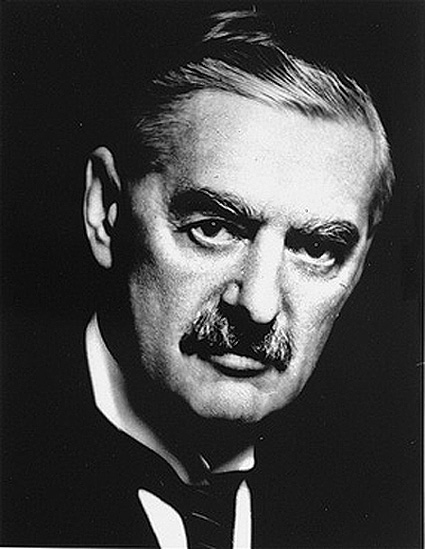
“How horrible, fantastic, incredible it is that we should be digging trenches and trying on gas masks here because of a quarrel in a far-away country between people of whom we know nothing.”
This remark, made by then-Prime Minister Neville Chamberlain during a radio broadcast in 1938 after the German invasion of Czechoslovakia and the collapse of the Versailles Treaty, epitomizes the international policy of appeasement during the 1930s.
Any good student of history knows that it was this policy that enabled Adolf Hitler to build the world’s most powerful military and destroy much of Europe.
Unfortunately, once again the international community has adopted a policy of appeasement.
Chamberlain’s argument for “peace in our own time” mirrors that of too many politicians today regarding Syrian President Bashar Assad’s use of chemical weapons, an act which the international community has said is against the laws of war.
Despite the urgings of Prime Minister David Cameron, the British Parliament on Aug. 28 voted against military intervention in Syria.
“We need to be cautious on Syria. What is the threat to British interests?” asked Bob Blackman, a member of Parliament, as reported by the BBC.
After the massacre of more than 1,400 civilians — including more than 400 children — with sarin, a potent nerve agent, came to light on Aug. 21, I expected a swift and hard response from the international community. Obviously, Syria had crossed the “red line” that President Obama had warned would lead to U.S. military action.
Instead, nothing happened. The international community just watched. And instead of “peace in our time,” we have “out of sight, out of mind.”
President Obama merely condemned the attacks, saying Syria is “of great concern,” in a CNN interview. Then, instead of taking action as commander-in-chief, he decided to leave the decision up to Congress. While many believe he did this in order to build more support from legislators, it seems more likely he simply doesn’t want to take complete responsibility for what might happen.
By throwing responsibility for military decision-making on legislators in Congress and Parliament, both President Obama and Prime Minister Cameron have taken Neville Chamberlain’s road of appeasement. Fearing war, they are playing politics with a moral crisis.
But this is not the time for politics. We need action.
We can no longer treat the Syrian conflict as just another civil war. It’s not. This isn’t a conflict between two centralized militaries. It is the massacre of civilians by a powerful government, and an uprising by rebel forces, which either don’t care about or don’t have the ability to defend the people.
In this situation, we must put away our resentment of war and our partisan ideologies because this is not a economic issue, or a geostrategic one, or even a political one. It is a moral one.
Just because we are not affected by injustice doesn’t mean we can ethically ignore it. For example, even though bombing the railroads to the Auschwitz concentration camp, where the Nazis murdered more than a million people, would not have significantly furthered the Allied objectives, it was, in hindsight, morally right.
The same logic goes in Syria. It is our responsibility to defend the defenseless.
Deliberating is a waste of time. The Syrian regime knew that the use of chemical weapons was against international policy and did it anyway. While we argue over the repercussions of a strike, the Syrian military continues to flee its bases, making intervention more and more difficult.
I understand that after the Iraq War and the continuing troop presence in Afghanistan, many countries are weary of war. They don’t want to take responsibility for putting Syria back together after a strike. However, what I propose is what we did in Yugoslavia – fast and hard hits with no boots on the ground. The goal is key: In Iraq we were intent on removing one person — Saddam Hussein — from power, but in Yugoslavia we attacked in order to defend many people from tyranny. There’s a difference.
Strikes in Syria won’t destroy the Assad regime, since as of now, it is the only force capable of maintaining stability in the region. But they will send a message that when a nation breaks the rules of war, there will be consequences, and the world will not stand idly by. Given growing tensions over nuclear programs in North Korea and Iran, it’s a message that may need to be repeated.
As the story of Neville Chamberlain and Adolf Hitler shows, we must learn from our history. Inaction in the face of tyranny is not acceptable. Chamberlain’s inability to challenge the Nazi tyranny in Czechoslovaki led to a much greater and costlier war. With Syria, we can’t make the same mistake.
